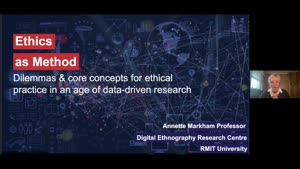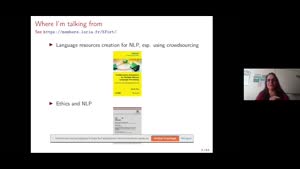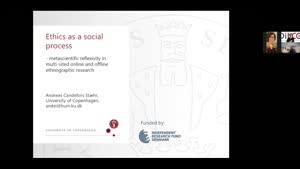DiLCo Methods Day 2023: Tying together the Total Linguistic Fact: Multi-method approaches to smartphone-based interactions (6 October) - Florian Busch - University of Hamburg
- Lecture2Go
- Catalog
- F.5 - Geisteswissenschaften
- Sprache, Literatur, Medien (SLM I + II)
- Digital language variation in context (DiLCo)
Catalog
1638 Views
06.10.2023
DiLCo Methods Day 2023: Tying together the Total Linguistic Fact: Multi-method approaches to smartphone-based interactions (6 October)
DiLCo Methods Day 2023
Methods for on/offline nexus analysis: Multi-sited ethnography and heterogeneous data management
The paper sheds light on the methodological settings of two research projects that deal with everyday smartphone-based interactions, both of which use multi-method approaches. Both study designs are theoretically based on the comprehensive concept of the Total Linguistic Fact (Silverstein 1985) and investigate the interweaving of semiotic structures, communicative practices, and cultural ideologies in and around digitally mediated interactions. The first exemplary project examines written variation intexting among German adolescents and uses a multi-level framework of frequentative variation analyses, interactional sequence analyses, and interviews to identify socio-indexical registers that shape the digital literacies of the populationstudied (Busch 2021). The second exemplary project investigates temporalities and rhythms in everyday smartphone communication in Germany and Switzerland, based on screen capturing data and interviews. Drawing on a pilot study, the paper outlines the workflows of data collection and data preparation that are required for this relatively unexplored type of data and discusses the ethical, practical, and analytical challenges that arise. Additionally, the presentation addresses which research questions can be answered using screen capturing data, where static log files or screenshots might be not sufficient. In view of these two studies, the paper advocates for multi-method approaches and multi-layered datasets to trace the complexities of smartphone-based communication through the lens of a TLF-oriented linguistics.
Florian Busch is assistant professor at the Institute of German Studies at the University of Bern. His research interests include interactional sociolinguistics, grapholinguistics, digital communication as well as metapragmatics and language ideologies. He co-edited a special issue on "The Sociolinguistics of Exclusion" in Language & Communication and published a book on adolescents' digital writing. He is the Principal Investigator of the SNSF-funded research project "Texting in Time", exploring the temporalities of smartphone-based interactions in the mediatized lives of European societies.
The 2023 Methods Day focuses on multi-sited fieldwork across on- and offline sites of interaction and discourse, and the resulting need to manage heterogeneous data, such as interviews, fieldwork notes, and digital data in text and audiovisual format. These research techniques are familiar from earlier stages of digital ethnography and discourse analysis. However, they currently gain importance and complexity as researchers turn to the ‘online/offline nexus’, i.e. the interdependence of online and offline activities in everyday private or organizational communication.
This one-day event includes presentations by researchers with intensive first-hand expertise in conducting multi-sited research and managing heterogeneous data sets. Each presentation showcases a particular research technique or case study methodology. Topics include: designing and conducting blended fieldwork; context-sensitive strategies for on/offline data collection; and software-assisted coding, categorizing and triangulating heterogeneous data.
Video production: Office for Digitality in Teaching: Faculty of Humanities (uhh.de/gw-dl-buero)
---
DiLCo (‘Digital language variation in context’) is a 3-year international research network initiated in 2021 at the University of Hamburg. The network brings together researchers from Europe and USA with expertise in computational, interactional, and ethnographic approaches to digital language and linguistics. It aims to provide a platform for the development of interdisciplinary ideas in digital language and communication research, and for early-career capacity building.
---
DiLCo (‘Digital language variation in context’) is a 3-year international research network initiated in 2021 at the University of Hamburg. The network brings together researchers from Europe and USA with expertise in computational, interactional, and ethnographic approaches to digital language and linguistics. It aims to provide a platform for the development of interdisciplinary ideas in digital language and communication research, and for early-career capacity building.
Technical support
Please click on the link bellow and then fill out the required fields to contact our Support Team!
RRZ Support Link

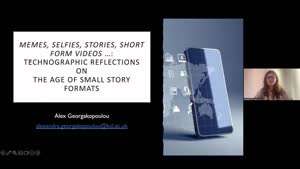
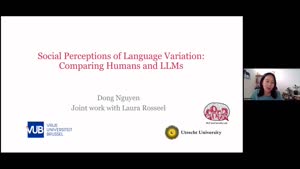
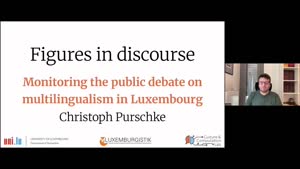
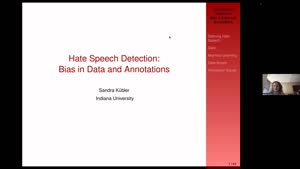
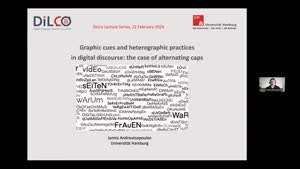
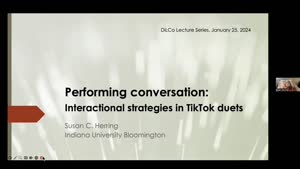
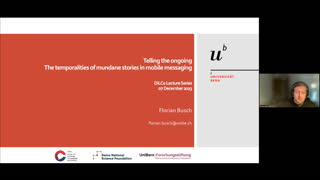
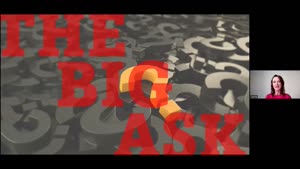
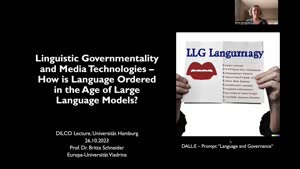
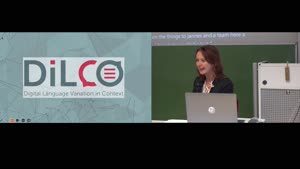
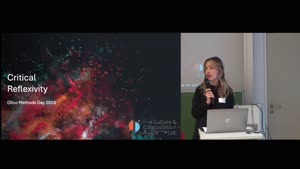
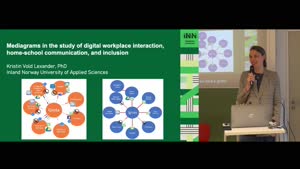
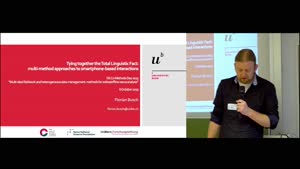
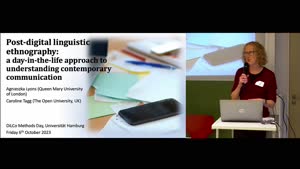
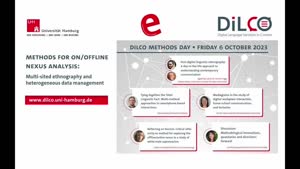
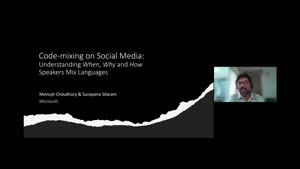
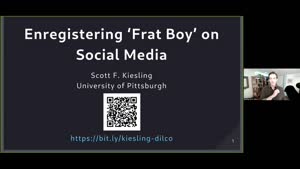
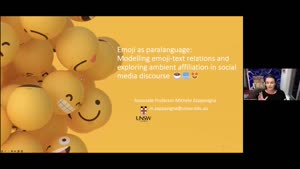
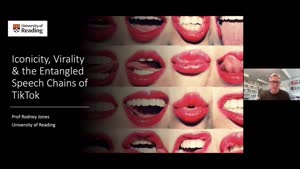
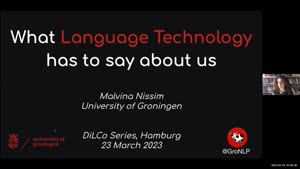
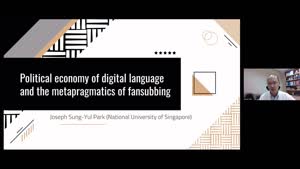
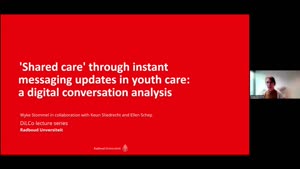
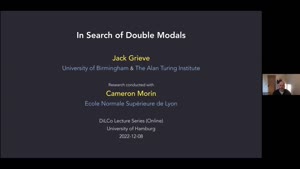
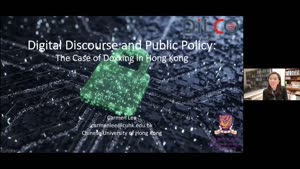
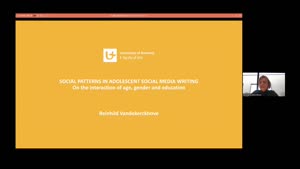
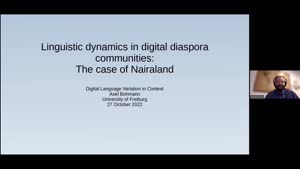
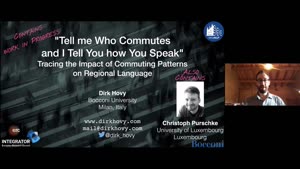
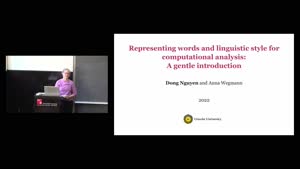
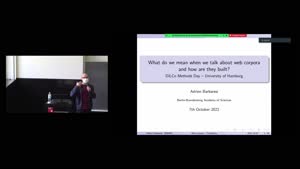
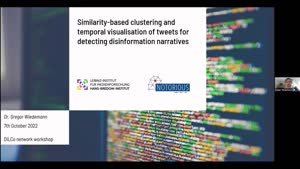
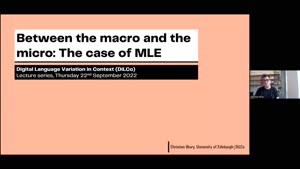
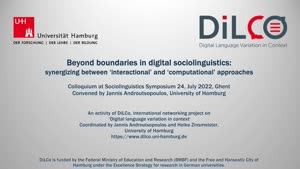
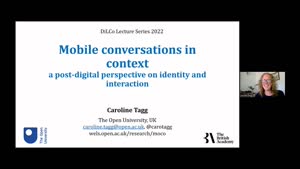
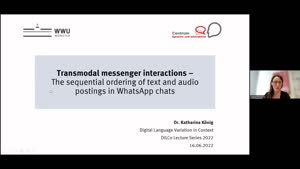
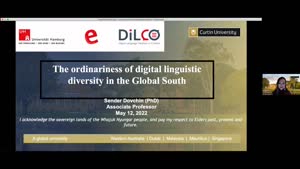
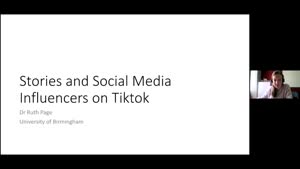
![Thumbnail - Graphic Prosody and political discourse on Greek Reddit [Presentation in Greek]](https://lecture2go.uni-hamburg.de/images/00.000_video-61074_2022-03-30_18-30_m.jpg?lastmodified=1663761108652)
